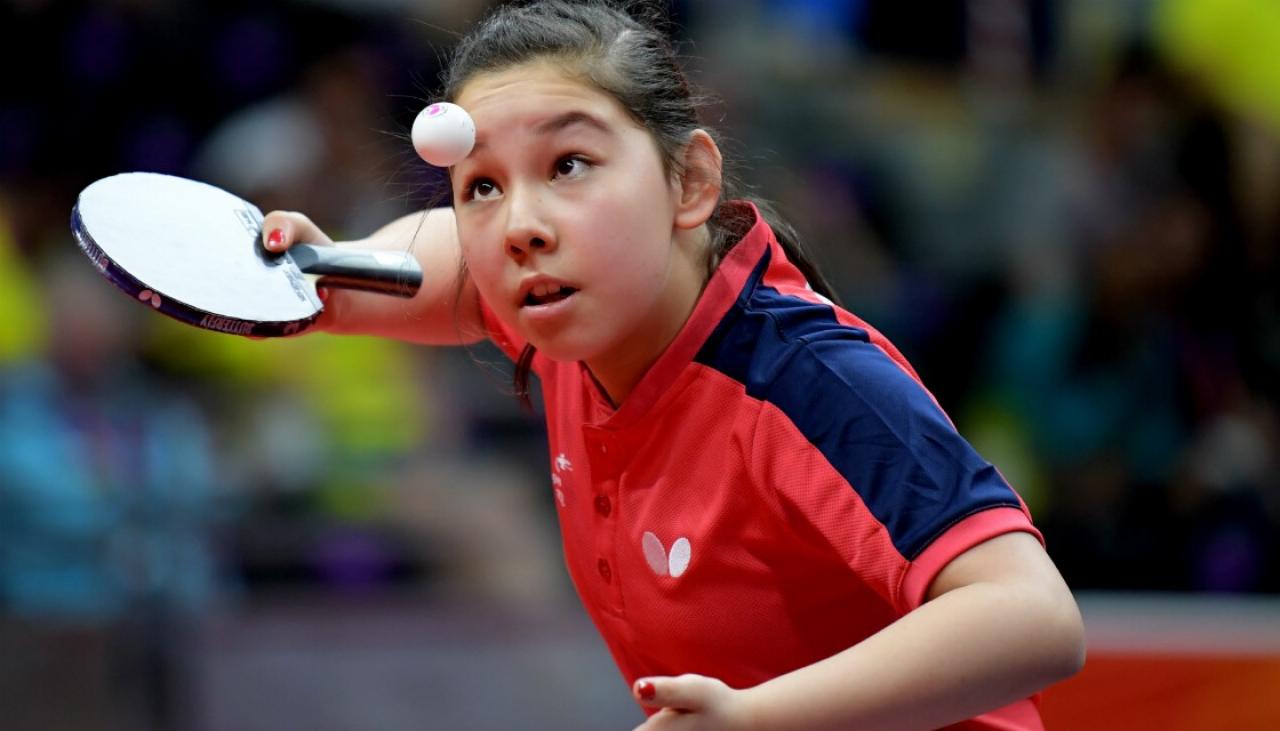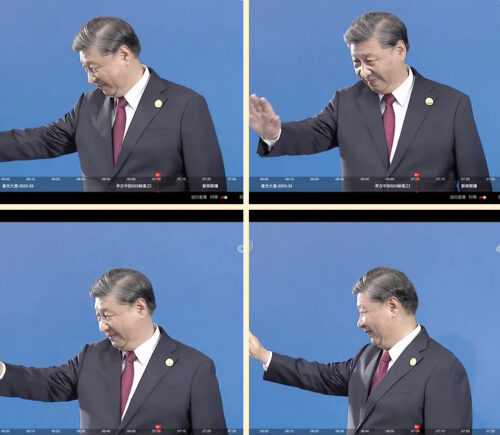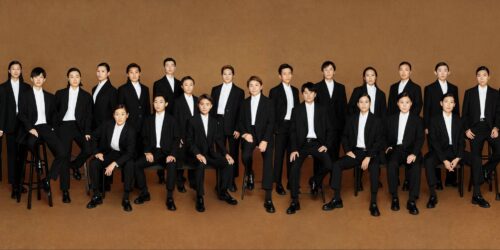Zlatan’s $100 Million China Offer and Man U’s Chinese ‘Fans’…? Don’t Believe Everything You Read
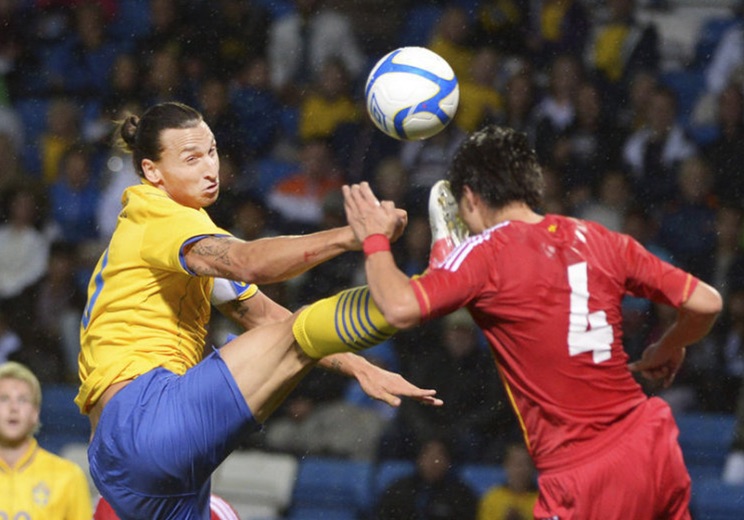
The China Sports Column is a The China Project weekly feature in which China Sports Insider Mark Dreyer looks at the week that was in the China sports world.
It pays to be skeptical in China — and that’s as true in sports as it is in economics.
The so-called “Li Keqiang index,” a term originally coined by The Economist after it was revealed the Chinese premier prefers to gauge the economy using his own indicators instead of trusting official data, is well known.
However, the figures bouncing around China’s sports sector are just as likely to raise eyebrows.
Just this week, a report from Sports Illustrated’s Grant Wahl — arguably the most connected man in U.S. soccer — said that new LA Galaxy signee Zlatan Ibrahimovic, who dominated sports headlines last weekend after scoring a stunning goal in his MLS debut, had turned down nearly $100 million from a Chinese club to ply his trade in Los Angeles for the meager sum of $1.5 million per year.
But if it sounds too good to be true, that’s because it is.
The number comes from former Galaxy player — and now the club’s technical director — Jovan Kirovski, who most likely got his information from Ibrahimovic’s agent, Mino Raiola.
That’s Raiola, referred to by Napoli president Aurelio De Laurentiis as “a pain in the backside,” by legendary Manchester United manager Sir Alex Ferguson as “a shit bag,” by the current Manchester United administration as “meddling,” and summed up by The Independent as “one of the market’s most outrageous figures.”
As detailed in this Forbes piece, rumors about big-name players going to unnamed Chinese clubs regularly gain traction overseas because it has happened before. Carlos Tevez was likely only making about half of what was widely reported, but that would still equate to more than $400,000 per week for what he later described as a “seven-month vacation.”
But 99 percent of these rumors don’t pan out, because they are either started by bored tabloid editors looking to fill column inches or by agents floating the concept of mysterious Chinese interest with the intention of driving their players’ salaries even higher.
The financial landscape in the Chinese Super League has shifted radically since Tevez pocketed his millions, with sweeping changes brought in to curb what was viewed as overspending. And while Wahl told me this week that Kirovski was likely informed about the offer last year before that change truly took effect, there’s no CSL club in today’s environment either willing or able to offer anything close to that number.
Will Chinese soccer teams learn from the failed Carlos Tevez experiment?
Ibrahimovic moved to the U.S. last month from Manchester United, one of the most commercially profitable brands in the world. The fact that the club lists an “official paint partner” in Japan tells you everything you need to know about how well it maximizes its commercial potential around the world.
But the club, like the agents, can also play fast and loose with the numbers.
Man Utd’s latest deal was signed this week with Chinese financial giant Ping An, giving Chinese customers the option of getting a club-branded UnionPay credit card.
The question is, though, how many people will actually do that.
The official release says Ping An will “engage with the club’s 100 million-plus Chinese followers,” with Richard Arnold, the club’s Group Managing Director, saying: “With more Manchester United followers in China than anywhere else in the world, it is really important for us to be able to engage and communicate with our loyal Chinese fans, in what is a significant region for the club.”
The emphasis above is mine, because the club has once again deliberately confused the concept of follower and fan. A club-commissioned survey in 2011 found that Manchester United had 659 million followers around the world, of which 108 million were located in China. But the club’s own definition of a “follower” is anyone who takes an interest in the club’s fortunes — and that includes fans of rival clubs, who would rather gouge their own eyes out than use a Manchester United credit card. That’s how much a true “fan” — not a follower — cares about his or her own club.
Next up in this special edition of “Sporting Skepticism” is the soccer-rugby hybrid known as Australian rules football. The league has been making inroads into the Chinese market in recent years with a number of commercial tie-ups, highlighted by the first regular season AFL game to be held outside Australia or New Zealand, which took place in Shanghai last May.
Gold Coast and Port Adelaide will again play in Shanghai this year with coverage on three local TV stations. But with the third sentence of the AFL news item citing a population of more than 130 million in those stations’ local markets implying a “potential for huge audiences,” Australians would be forgiven for thinking that China will quickly become the league’s biggest market.
In reality, while a deal to air 23 games this year on Guangzhou TV is not to be sniffed at, the sport will remain firmly in “niche” territory for years to come.
Another interesting claim in the past few days came from IOC President Thomas Bach, who said Kim Jong-un was committed to sending a North Korean delegation both to the Tokyo Olympics in 2020 as well as to the Beijing Olympics in 2022.
That’s all well and good for Bach, who likes to portray himself as someone who unites peoples through sport, but so much can happen in four weeks on the Korean peninsula that looking four years ahead seems rather pointless.
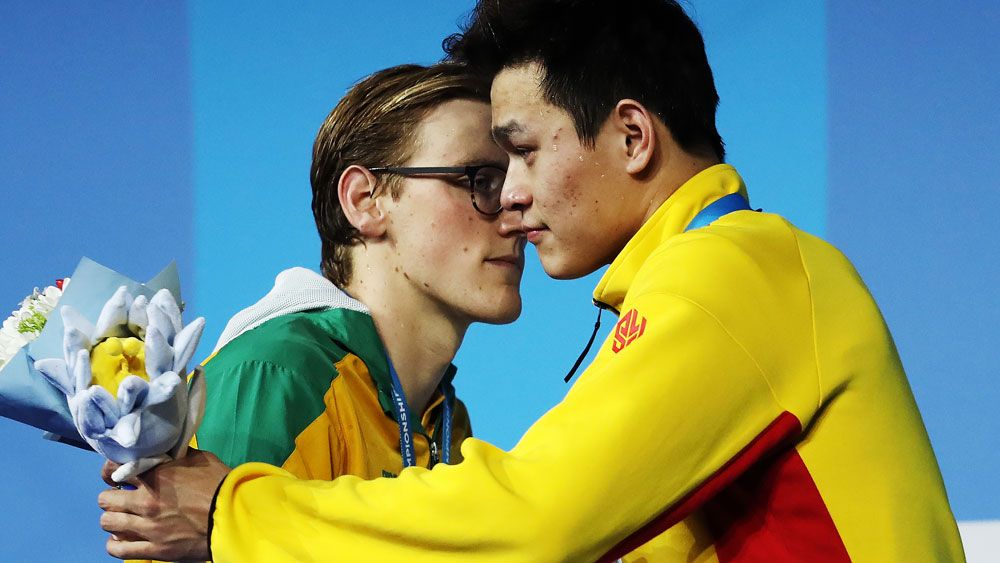
Elsewhere this week, while China is not — and has never been — part of the Commonwealth, there are a couple of China-related stories from the ongoing Commonwealth Games on Australia’s Gold Coast.
First, long-distance swimmer Mack Horton, who feuded extensively with Chinese rival Sun Yang at the Rio Olympics over Sun’s earlier three-month ban for a doping violation, doubled down over the incident when asked about it in the build-up to the Commonwealth Games.
He told reporters he wouldn’t change a thing about how he had behaved in Rio, adding that he was proud of how he handled himself. So far, there have been no death threats made online by Sun’s army of fans, but as the wrong Mack Horton found out two years ago, the abuse can be overwhelming.
On a more positive note, 11-year-old schoolgirl Anna Hursey completed her first match at the Games, winning a doubles table tennis duel — and earning thousands of fans in the process.
Hursey sounds as Welsh as any of her classmates back home, but it was actually during a trip several years ago to her mother’s hometown — in Harbin, China — that she first got into the sport. She plans to spend more time training in China with the best coaches in the world in her quest to make it to the top, but her background as well as her obvious talent could make her a star here in years to come.
Some other stories this week:
- In sports movie news, hoop dreams are coming soon to a Tibetan Plateau near you, while Li Na’s big-screen story is starting production later this year.
- The mystery behind Shanghai SIPG’s Brazilian “miracle doctor.”
- Why China needs to build a culture to rival the great marathons in United States and Europe.
- Southern China’s skaters grind a fine line between the stadium and the street.
The China Sports Column runs every Friday on The China Project. Follow Mark Dreyer @DreyerChina.
